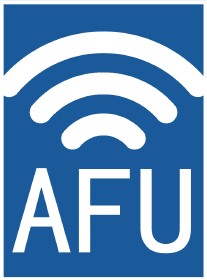Introduction
In today's connected world, reliable indoor wireless coverage is no longer a luxury—it's a necessity. Indoor MIMO Omni Ceiling Antennas have emerged as the go-to solution for delivering high-performance WiFi, cellular, and IoT connectivity in offices, hotels, hospitals, and smart buildings. These discreet yet powerful antennas combine Multiple Input Multiple Output (MIMO) technology with omnidirectional radiation patterns to provide seamless 360° coverage from ceiling-mounted positions.
This article explores the technology behind these antennas, their advantages over traditional solutions, key applications, and how they're shaping the future of indoor wireless networks. Whether you're a network designer, facility manager, or IT professional, understanding these antennas will help you optimize indoor coverage and capacity.
How Indoor MIMO Omni Ceiling Antennas Work
These specialized antennas integrate several advanced technologies:
MIMO Configuration: Typically 2x2 or 4x4 MIMO for simultaneous data streams
Omnidirectional Radiation: Even 360° horizontal coverage with controlled vertical beamwidth
Multi-Band Operation: Supports 4G LTE (700-2700 MHz), 5G NR, and WiFi 6/6E frequencies
Low-Profile Design: Discreet ceiling-mounted form factors (often <30cm diameter)
The antennas use polarization diversity (vertical + horizontal) to improve signal reliability and beam tilt optimization to focus energy where users need it most—toward the floor rather than the ceiling.
Key Advantages Over Traditional Antennas
Uniform Coverage: Eliminates dead zones in complex indoor environments
Higher Capacity: MIMO enables faster speeds for more simultaneous users
Aesthetic Integration: Blends seamlessly with modern interior designs
Future-Proof: Supports current and next-gen wireless standards
Easy Deployment: Simplified installation with PoE-powered options available
Critical Applications
Enterprise WiFi: Offices, conference centers, and coworking spaces
Healthcare: Reliable connectivity for medical IoT and staff communications
Hospitality: High-quality guest WiFi in hotels and resorts
Education: Classroom connectivity for digital learning tools
Smart Buildings: Support for building automation and security systems
Technical Specifications Comparison
Feature | Standard Ceiling Antenna | MIMO Omni Ceiling Antenna |
Technology | SISO (Single Input Single Output) | 2x2 or 4x4 MIMO |
Peak Data Rate | ~150 Mbps | 600 Mbps - 1.2 Gbps |
Coverage Pattern | Uneven, direction-dependent | Consistent 360° |
User Capacity | 20-30 devices | 50-100+ devices |
Future Upgrade Path | Limited | 5G-ready |
Installation Best Practices
Placement: Install at 2.5-3.5m height for optimal coverage
Density: Deploy every 15-20m in open spaces, closer in high-partition areas
Alignment: Ensure proper polarization matching with client devices
Cabling: Use low-loss cables (LMR-400 or better) for best performance
Conclusion
Indoor MIMO Omni Ceiling Antennas represent the gold standard for reliable, high-capacity indoor wireless coverage. As buildings become smarter and connectivity demands grow, these antennas will play an increasingly vital role in keeping people and devices connected seamlessly.

